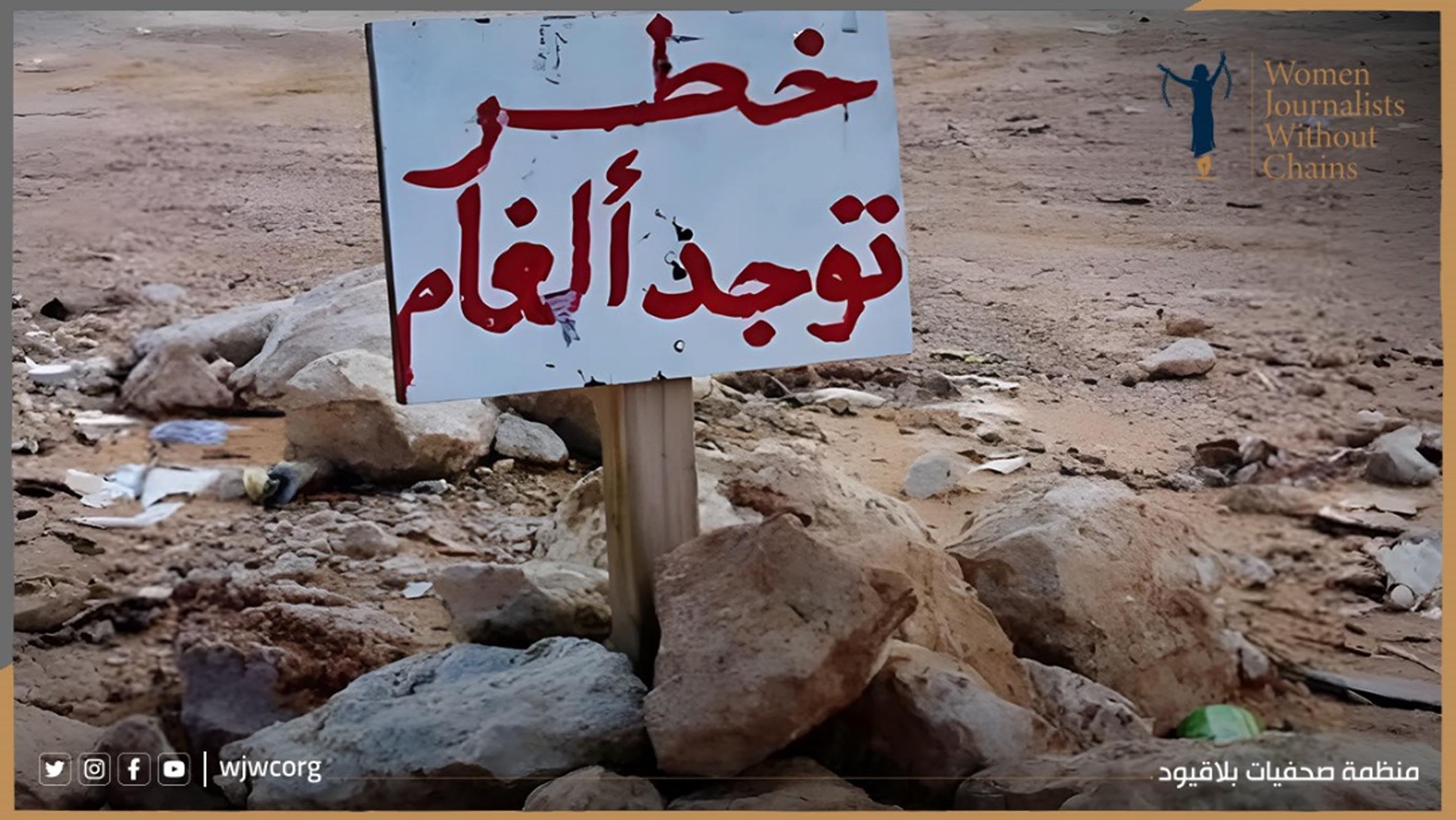Wjwc News

A Silent Threat: The Rise of Mine Casualties in Syria
Since early December 2024, Syria has witnessed a distressing increase in civilian casualties due to landmines, with reports indicating dozens of deaths and injuries.
Women Journalists Without Chains (WJWC) emphasizes the urgent need for all parties in Syria to promptly identify and remove these deadly remnants of conflict.
Recent incidents underscore the gravity of the situation. On December 14, a devastating explosion claimed the lives of a family of six near the village of Abu Lafa, east of Hama Governorate. The tragic event resulted in the deaths of three children, two women, and a man as they attempted to return home.
The plight of displaced Syrians is particularly dire, as many seek to navigate their way back amid a landscape fraught with danger. Women Journalists Without Chains warns that the rising toll of mine victims necessitates immediate action to safeguard civilians, especially for those returning after the departure of the Assad regime.
Historical data reveals that Syria ranked first in the world for mine casualties in 2020, with approximately 2,729 victims, and second in 2023 with 933 casualties. The regime of President Bashar al-Assad has significantly increased its deployment of banned landmines since the outbreak of protests in 2011.
Reports from the Syrian Network for Human Rights indicate that various parties involved in the conflict, including controlling forces, have extensively used these indiscriminate weapons.
It is evident that Syrian governorates have seen a significant uptick in mine explosions affecting civilians, particularly since the opposition factions launched an attack on Assad’s forces in late November. This assault forced him to seek refuge in Russia on December 8, leaving behind a grim legacy of human rights violations.
In addition to the heartbreaking case in Hama, where six family members lost their lives, Women Journalists Without Chains has documented other incidents across four Syrian governorates since the beginning of December.
In light of this escalating crisis, the organization calls on the international community to prioritize mine clearance efforts in Syria, aiming to protect innocent lives and restore hope for a safer future.
Idlib
The recent death of 15-year-old Iyad Sultan Al-Ismail on December 18 underscores the dangers posed by landmines. According to Syrian human rights organizations, Iyad was killed and his two brothers were injured when a mine exploded in agricultural land between the town of Tell Mannas and the village of Maar Shurin, east of Idlib. This follows the tragic incident on December 14, when 17-year-old Muhammad Abdul-Mu'in and his 14-year-old brother, Abdul-Rahman, from Maarat al-Nu'man, were killed by a mine while harvesting olives near the village of San, also in Idlib. Two other children were injured in that explosion.
Deir Ezzor
Recent landmine explosions in Deir Ezzor Governorate have resulted in multiple civilian deaths. On December 14, three civilians were killed in the village of Mu'ayzilah. Earlier, on December 11, Raed al-Hout died in Baqras, while Awad al-Hussein and Uday Arafat were killed in al-Duwair. Additionally, on December 10, Ali Awad al-Saeed lost his life in a mine explosion near al-Quriyah.
Aleppo
In Aleppo Governorate, significant violations of the right to life due to landmines have been reported. On December 10, an explosion occurred near the city of Atarib, resulting in the deaths of two brothers, Issam Qushait and Mahmoud, while they were plowing the land. Additionally, on December 5, Kawthar Mustafa was killed in a mine explosion on the outskirts of the village of Kafr Taal in western Aleppo.
Civilian Safety and Landmines
The Second Protocol to the 1980 United Nations Convention explicitly prohibits the use of landmines due to their devastating impact on civilian populations. Similarly, the First Protocol of the 1977 Geneva Convention emphasizes the necessity for parties in conflict to distinguish at all times between civilians and combatants, directing military operations solely against legitimate military targets.
The Ottawa Treaty, or the "Mine Ban Convention," signed in 1997, prohibits the use, transfer, production, or stockpiling of anti-personnel mines. As of 2023, 164 countries have ratified the treaty, establishing a strong international norm against these weapons. Although Syria is not a signatory, the widespread acceptance of the treaty among the majority of nations reinforces its principles as customary international law, thereby obligating all states to adhere to the ban.
In light of these violations, WJWC calls for an immediate investigation to determine the entities responsible for the deployment of landmines in Syria, urging accountability for those who utilize such indiscriminate weapons, which pose ongoing risks to civilian safety long after hostilities have ceased.
WJWC’s Recommendations and Demands
Women Journalists Without Chains advocates for essential measures to mitigate the impact of landmines in Syria. First, it is imperative that all parties involved in the conflict, including the regime of former President Bashar al-Assad, disclose the locations of landmine deployment. This information is crucial for identifying areas frequently used by civilians—such as roads and residential sites—allowing for the urgent implementation of safety protocols to reduce mine-related casualties.
Furthermore, collaboration is needed between relevant bodies and engineering teams engaged in mine clearance operations. Sharing information will help mitigate the risks these teams face while carrying out their vital work. In addition, international organizations must support local entities and engineering teams by providing necessary training, technical resources, and protective equipment for deminers. Access to international expertise and advice should also be made available when required.
Additionally, there must be an immediate cessation of the use of anti-personnel mines and randomly deployed anti-armor mines, both of which pose significant dangers to civilians. Finally, it is crucial to provide comprehensive support for individuals affected by landmines, addressing their physical injuries and psychological trauma, while also extending psychological support to their families.
